Culture Lab Detroit
A forum for design invigoration within a city alive with creative thinking

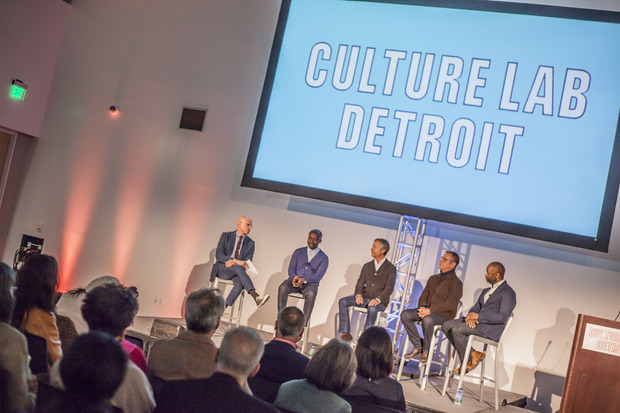
Detroit has more than the makings of a contemporary cultural capital; the city holds a rich history as a pioneer in music and industrial innovation. But there’s no shortage of current programs that continue to encourage artists to foster, evolve and perpetuate its legacy. One of America’s best MFA curriculums, Cranbrook, exists just a few miles north of downtown and inspires people with vibrant passions to create and share within the arts and sciences. And in its second year, Culture Lab Detroit—a platform involving talks, exhibitions, salon dinners and performances—bolsters this with a unifying voice and an influx of ideas. Founder Jane Schulak worked in collaboration with the Detroit Creative Corridor Center (known as DC3) and Detroit College for Creative Studies to bring to life a platform for conversation and planting the early seeds of collaboration. Not only does the effort immediately and directly impact the community, it will do so for years to come.
This year’s centerpiece, a panel dubbed “Art Interventions,” brought together a diverse group of globally acclaimed talent on one stage. Moderator David Stark—a NYC production and events designer whose transformative, experiential scenes drape wonder within preexisting spaces—sat with architect David Adjaye, Brazilian furniture designers the Campana Brothers and large-scale artist Theaster Gates. Schulak refers to the speakers as a dream team—a list of individuals she wanted from the beginning of this second installment, many of whom she cold-called with a request to participate.
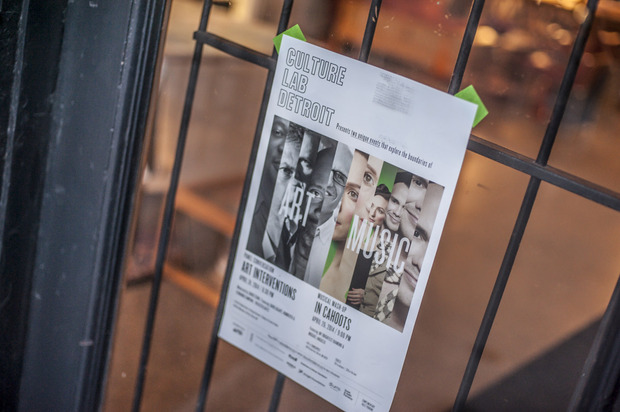
So many creators work so hard here. It’s important to take time to feel it.
That same excitable, DIY spirit is what led to Culture Lab’s realization last year, after more than two years of research. “So many creators work so hard here. It’s important to take time to feel it,” Schulak shares with CH. “The idea of this platform was new, but who I had was very obvious,” she notes of her experimental concept. With the draw of these outside anchors, Schulak could encourage dialog within the city borders, while also catching the national eye. After the speakers were confirmed, Schulak basically went door-to-door inviting people—spreading the word and letting local designers and makers know their voices could be heard as well.
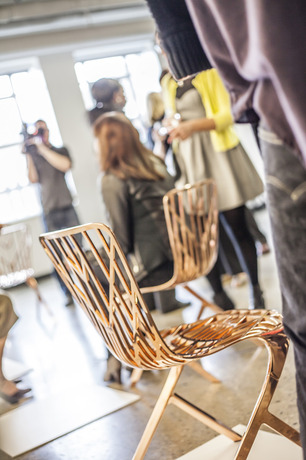
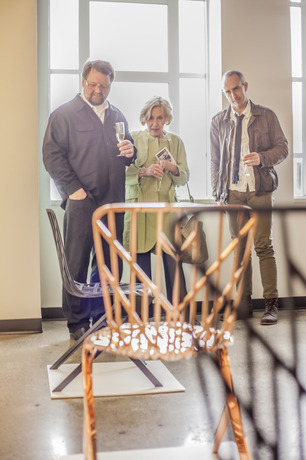
This year, the forum showed tremendous growth. And, as the panel commenced to a packed audience, Gates struck the best point. The individuals on stage were there to inspire and ideate, but the main focus is on Detroit’s creative community—urban farmers, installation artists and more. Gates asked the audience to look among themselves and recognize the spirit and its products. He also requested that those outside of Detroit take note of the triumphs always occurring within the city.

Following this conversation, the artists unfurled work in many ways across the city: Adjaye hosted an exhibition of his furniture collection for Knoll and the Campana Brothers showcased a retrospective at RE:View Gallery. Stark designed the setting for a salon dinner, at which artists and politicians and designers would mix and mingle. Throughout, there was an open dialogue between speakers and the audience and community members—all sharing insights and ideas.
“We see places here that are the same as Sao Paolo [with] the attitudes toward reconstruction with elements from the past,” Fernando Campana says. “To see a very glorious city, to see the decadence, those things tease me.”
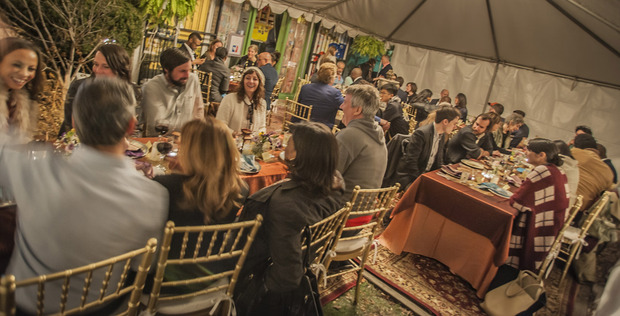
Last year’s Culture Lab saw Stark embark on a collaboration with the celebrated team at Pewabic Pottery, and hopefully this year’s event will inspire like-minded, sensational projects. Gates says, “Art [can be used] as design for social change. The work is happening in Detroit; when outside artists come to tour, we are already engaged. The same root of creative ingenuity is already flowing here.”
“It’s important for us to exchange ideas, otherwise we will be a cultural prison,” Gates pinpoints. As much as Culture Lab is a successful celebration of the city, it is also an acceptance that so much more can be done—together.
Photography by Ara Howrani, Courtesy of Culture Lab Detroit, Campana Brothers images courtesy of RE:View Gallery












